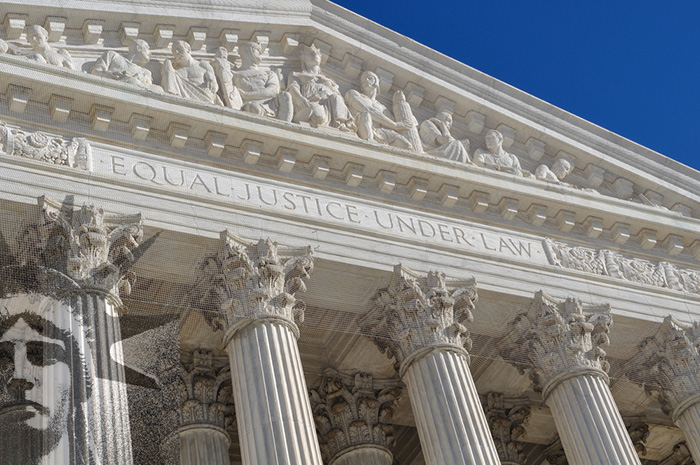
[dc]T[/dc]his morning the eight-member United States Supreme Court heard the contraceptive mandate cases that were consolidated under the name Zubik v. Burwell (Docket Number 15-191). (See transcript.) The cases involve employers who rejected the method of receiving the “religious employer exemption” to the Affordable Care Act (2010) which required group health plans and insurance issues to offer plans that provided “approved contraceptive methods, sterilization procedures, and patient education and counseling for all women with reproductive capacity.”
Religious employers that objected were exempted from covering these services, meaning that they would not have to pay for them through a cost-sharing mechanism, but that employees would still receive them as part of their benefit packages.
The religious employers claimed that this accommodation still violated the Religious Freedom Restoration Act (RFRA – passed in 1993) because it required these employers to “facilitate” the coverage – and that the minimal activity would still substantially burden the employers’ free exercise of religion.
Questions Before the Court
The parties have submitted briefs and many others submitted amicus briefs (see ScotusBlog.com) that addressed the following questions before the Court:
(1) Does the availability of a regulatory exemption for religious employers regarding the Affordable Care Act’s contraceptive mandate eliminate the substantial burden on those organizations’ exercise of their religious freedom?
(2) Do the Department of Health and Human Services’ guidelines satisfy the Religious Freedom Restoration Act’s demanding test for overriding religious objections?
(3) Do the Department of Health and Human Services’ guidelines violate the Religious Freedom Restoration Act when the government has not proven that the guidelines are the least restrictive means of advancing the compelling government interest?
Oral Argument
The religious employers were represented by attorneys Paul D. Clement and Noel Francisco who separately appeared before the Court on behalf of different petitioners and Soliciter General Donald Verrilli appeared on behalf of the United States Department of Justice in defense of the mandate.
The decision will likely be rendered sometime this summer. If there is a 4-4 split, the lower court decisions will stand.
Concerns
Professor Douglas Laycock wrote a brief on behalf of the Baptist Joint Committee in which he emphasized two points:
1) Religious objectors who claim that a substantial burden to their religious free exercise entitles them to relief under the Religious Freedom Restoration Act (RFRA) should be accorded deference on the question of the substantial burden on their faith, but they are not entitled to absolute deference.
2) The plaintiffs’ view that because churches and other houses of worship are provided an outright exemption from the contraceptive mandate, that other religious organizations should be treated the same, is a danger to religious liberty because of the many laws that currently provide limited religious exemptions.
Although there is a sincere desire to accommodate the full extent of religious objections, there is a high likelihood that a Supreme Court verdict in favor of the petitioners could ultimately backfire by causing Congress to tighten up the exemptions that currently exist.
In an op-ed published by the Washington Post over the weekend, Professor Laycock described the problem as follows:
[The argument brought by the charities] is a mortal threat to an essential and widespread source of protection for religious liberty. There are thousands of specific religious exemptions in U.S. law. If legislators and administrative agencies cannot enact a narrow religious exemption without it being expanded to become all-inclusive, many of them will not enact any religious exemptions at all. And they will start repealing the exemptions they have already enacted.
Holding: Religious groups objected to contraceptive mandate requirements.
